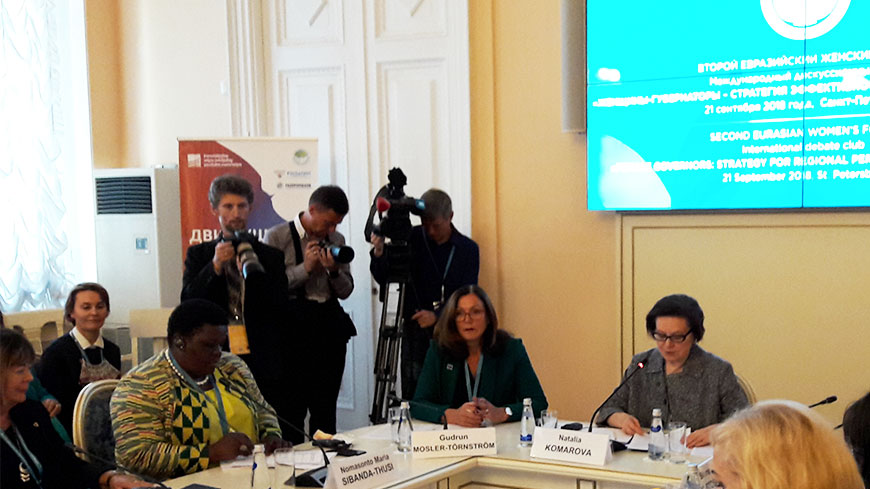“We need more dialogue and cooperation among us to advance the female agenda and harness the women’s potential,” stated Congress President Gudrun Mosler-Törnström during the debate on “Female governors: strategy of regional performance and growth”, in St Petersburg, Russian Federation, on 21 September 2018.
“The Council of Europe Congress, with its Chamber of Regions and Chamber of Local Authorities, offers a platform for such experience-sharing and mutual support, open to women elected locally or regionally in Europe,” she added.
Congress President welcomed the launching of the process of establishing a Eurasian Association of Women – Regional Leaders. “Supporting such ideas and initiatives will help us bring to all spheres of society a female perspective, our unique vision and approach to dealing with problems and challenges,” she stated.
“Both women’s presence and perspective in politics have a tremendous impact on the way policies and strategies are designed and implemented,” Congress President concluded.
The debate was held in the framework of the 2nd Eurasian Women’s Forum. Organised by the Council of the Federation Council of the Federal Assembly of Russia and the Inter-Parliamentary Assembly of the Commonwealth of Independent States (IPA-CIS), the Forum is focusing on women's involvement in global security and sustainable development. It will bring together women parliamentarians, as well as representatives of governments, international organizations, business, science, associations, and women's movements from different countries.




